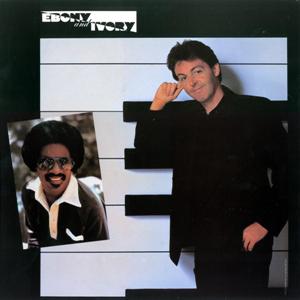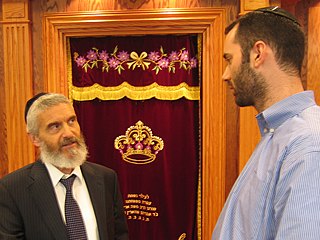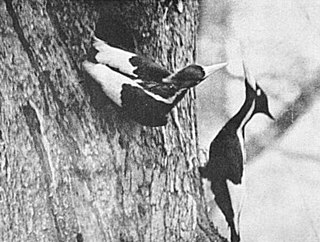Related Research Articles
Celluloids are a class of materials produced by mixing nitrocellulose and camphor, often with added dyes and other agents. Once much more common for its use as photographic film before the advent of safer methods, celluloid's common present-day uses are for manufacturing table tennis balls, musical instruments, combs, office equipment, fountain pen bodies, and guitar picks.
This article contains information about the literary events and publications of 1986.

Buffalo Soldiers were United States Army regiments composed primarily of African Americans, formed during the 19th century to serve on the American frontier. On September 21, 1866, the 10th Cavalry Regiment was formed at Fort Leavenworth, Kansas. The nickname "Buffalo Soldiers" was purportedly given to the regiment by Native Americans who fought against them in the American Indian Wars, and the term eventually became synonymous with all of the African American U.S. Army regiments established in 1866, including the 9th Cavalry Regiment, 10th Cavalry Regiment, 24th Infantry Regiment, 25th Infantry Regiment and 38th Infantry Regiment.

The Makua people, also known as Makhuwa or Wamakua, are a Bantu ethnic group found in northern Mozambique and the southern border provinces of Tanzania such as the Mtwara Region. They are the largest ethnic group in Mozambique, and primarily concentrated in a large region to the north of the Zambezi River.

"Ebony and Ivory" is a song that was released in 1982 as a single by Paul McCartney featuring Stevie Wonder. It was issued on 29 March that year as the lead single from McCartney's third solo album, Tug of War (1982). Written by McCartney, the song aligns the black and white keys of a piano keyboard with the theme of racial harmony. The single reached number one on both the UK and the US charts and was among the top-selling singles of 1982 in the US. During the apartheid era, the South African Broadcasting Corporation banned the song after Wonder dedicated his 1984 Academy Award for Best Original Song to Nelson Mandela.
Richard Laurence "Darby" McCarthy was an Australian jockey.

John Denny was a Buffalo Soldier in the United States Army and a recipient of America's highest military decoration—the Medal of Honor—for his actions in the Indian Wars of the western United States.

Akiva Tatz is a prominent South African Orthodox rabbi, inspirational speaker and writer who is heavily involved in Orthodox Jewish outreach. He is also a doctor and world-renowned expert in Jewish medical ethics.
David Kantilla was an Australian rules footballer who is recognised as the first Indigenous Australian to play in the South Australian National Football League and the first Tiwi Islander to successfully play in a southern football league. Throughout his footballing career he was known by his 'Anglo' name David Kantilla but also had his tribal name of Amparralamtua.
Colin Tatz AO was the director of the Australian Institute for Holocaust and Genocide Studies, Professor of Politics at the University of New England, Armidale, and at Macquarie University, Sydney.
Roger Leedham Brown is a former Australian first-class cricketer, who until the arrival of Jason Gillespie, had played more first-class matches than any other Aboriginal Australian.
Colours of the Syrian hamster can be described in three ways: as "self", "agouti" or "combinations". Self colours are a consistent coat colour with the same colour topcoat and undercoat. Agouti hamsters have a ticked coat, where each individual fur is banded in different colours. Agouti hamsters also have "agouti markings" which consist of dark cheek markings, a dark marking on the head, and a light underbelly. Combinations are produced when two self or agouti colours are present.
Frank Fisher (1905–1980) was an Aboriginal Australian professional rugby league footballer. Nicknamed "Big Shot" and "King" Fisher, he has been described as the Wally Lewis of Aboriginal Rugby league players. He was named as a member of the Indigenous Australian Rugby League Team of the Century.
Karl Peter Thomas Feifar, OAM was an indigenous Australian amputee athlete and Paralympic competitor.
Elkin Reilly was a former Australian rules footballer, representing South Melbourne Football Club in the Victorian Football League (VFL). He was one of the earlier Australian Aboriginals to play in the VFL.
The Aboriginal and Islander Sports Hall of Fame was established in 1994 to recognise Indigenous Australians that have achieved at the highest level of their chosen sport. It was a joint project of the Aboriginal and Torres Strait Islander Commission (ATSIC) and Macquarie University, under the management of Colin Tatz. Inductees are sometimes referred to as "Black Diamonds", being the name of the first book of the project, published in 1996.
Keith B. Saunders was an indigenous Australian professional boxer and author of two books.

The ivory-billed woodpecker is a woodpecker that is native to the bottomland hardwood forests and temperate coniferous forests of the Southern United States and Cuba. Habitat destruction and hunting have reduced populations so thoroughly that the species is listed by the International Union for Conservation of Nature (IUCN) on its Red List as critically endangered, and by the American Birding Association as "definitely or probably extinct". The last universally accepted sighting of an American ivory-billed woodpecker occurred in Louisiana in 1944, and the last universally accepted sighting of a Cuban ivory-billed woodpecker occurred in 1987, after the bird's rediscovery there the prior year. Sporadic reports of sightings and other evidence of the persistence of the species have continued since then.
Reverend Cecil Augustus Ivory was a Presbyterian minister, disability rights activist and sit-in leader during the Civil rights movement.
References
- Tatz, C. & Tatz, P. (1996) Black Diamonds, Allen & Unwin: Sydney. ISBN 1 86448 065 3.
- Tatz, C. & Tatz, P. (2000) Black Gold, Aboriginal Studies Press: Canberra. ISBN 0 85575 367 6.
- ↑ Tatz & Tatz, p 18
- ↑ "Jack Schatz Accepting the First Ever Frank Ivory Medal". Archived from the original on 6 October 2013.